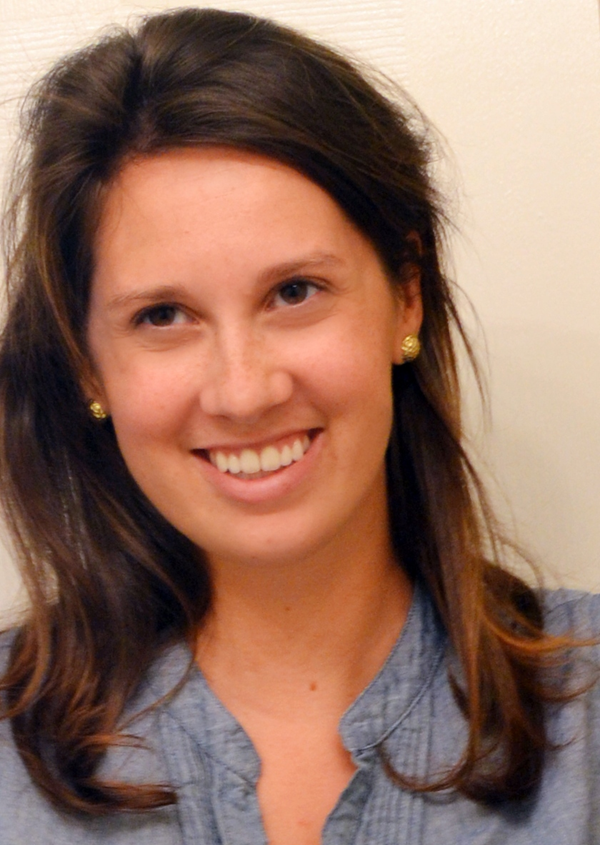
I expected 2013 to be my happiest year to date. I was going to celebrate my fifth wedding anniversary and give birth to my first child. Two weeks before our anniversary my husband and I found out that our unborn child wasn’t growing properly, and two months later our son was stillborn. Instead of being my happiest year to date, it ended up being the hardest.
Early in 2013 I read the “The Happiness Project” by Gretchen Rubin on a whim. Rubin’s journey through a year of seeking to be happier in all areas in life led me to think about what I do that gives me pleasure as well as what choices I make that might be contributing to any unhappiness I experience. In her preface, Rubin writes that one of her goals for the project was to prepare for hard times. She wanted to have the tools in place to help get through trials, and I have to say, the conclusions I made about my happiness have helped me as I grieve the loss of my son.
Please know my heart in sharing this is not to encourage you to think that personal happiness is the highest achievable goal in life. I think identifying what causes us to feel good versus bad is a helpful exercise in becoming a more confident, content and positive person.
Rubin picked a specific aspect of her life to concentrate on the first eleven months of the year, and then spent December trying to meet all of her goals combined. Some examples of her monthly resolutions include “Remember Love,” “Be Serious About Play” and “Pursue a Passion.” Then, she gave herself sub-goals within each category. During the month of “Remembering Love” she strived to “quit nagging, don’t expect praise or appreciation, fight right, no dumping [and] give proofs of love.” I liked Rubin’s method of approaching her goals—breaking them up allowed her to really concentrate on making victories in each area without becoming overwhelmed by dozens of aspirations.
Reading “The Happiness Project” helped me realize that I tend to become unhappy when I place too high of expectations on others and myself. I also struggle with feeling good when I spend hours watching television or browsing the Internet. On the other hand, walking the dog boosts my spirit without fail, as does seeing my house sparkle (even though I rarely have a good attitude about cleaning). Now that I recognize what makes me feel good versus bad, I feel better equipped to face the new year knowing that even the smallest of my choices has an affect my happiness. Here are a just of a few of the ways I plan on being happier in 2014:
Arm myself with God’s Word
If my thoughts stray from God’s truth then I will be anything but happy. Upon a friend’s suggestion I decided to pick a verse that I will memorize and focus on during the year. My verse for 2014 is Psalm 91:1-2 (well, I cheated and picked two). I know these verses will bring me comfort on the days I cry out over the loss of my son, and it will remind me place my trust in God when I struggle with fear of the future.
Record the things I love about my marriage
My favorite part of flipping through old entries in my “joy journal” is reading about sweet things my husband has said to me, silly times we’ve had or progress we’ve made in overcoming conflict. I want to remember even the little moments we share—like dancing in the kitchen or praying over decisions. I’m excited to be more intentional about this in 2014 and read the memories aloud to my husband at the end of the year.
“Enjoy the little things, for one day you may look back and realize they were the big things.” -Robert Brault
Serve in my community
God has grown my heart for the homeless after I began serving lunch once a month at a local rescue mission. A few weeks ago I was convicted to purchase a stack of $5 McDonald’s gift cards to keep in my car so that I’ll have something to give to panhandlers (without fearing they’ll use it poorly). One thing that came to mind when I read Rubin’s chapter on pursuing passions is that I’ve always wanted to volunteer with Big Brothers Big Sisters but never did anything about it. Writing this article brought that desire back to mind, and now I’m waiting to hear from an area representative about getting involved!
Only watch TV when I’m excited to do so
This is probably the weirdest goal you’ve ever heard. I’ve given it a lot of thought, though! I can easily spend several hours in front of the television on weekends or on weeknights, but I’m not always happy when I do so. TV is such a time-suck, and half of the time that it’s on, my brain is thinking of all the things I should be doing instead. If I can abide by this discipline then in turn I should be generally more productive, whether I spend that time cleaning, reading or having a phone date. Also, when I catch up on “Project Runway” or watch a movie with my husband, I’ll be more likely to enjoy myself and less likely to feel conflicted or guilty.
Other ways to increase happiness:
Cultivate your friendships (I need to work on #6)
Pursue your passions
Celebrate your weaknesses along with your strengths
Choose gratitude
Show yourself grace
I’m curious. What makes you happy? What is something you could start (or stop) doing that would bring you more happiness?

Laura Rennie lives in Maryland with her hilarious husband and constantly shedding dog. She loves reading, writing and playing word games. Her greatest desire is to share Jesus through her words and actions as she learns how to be a better wife, daughter, sister and friend.








